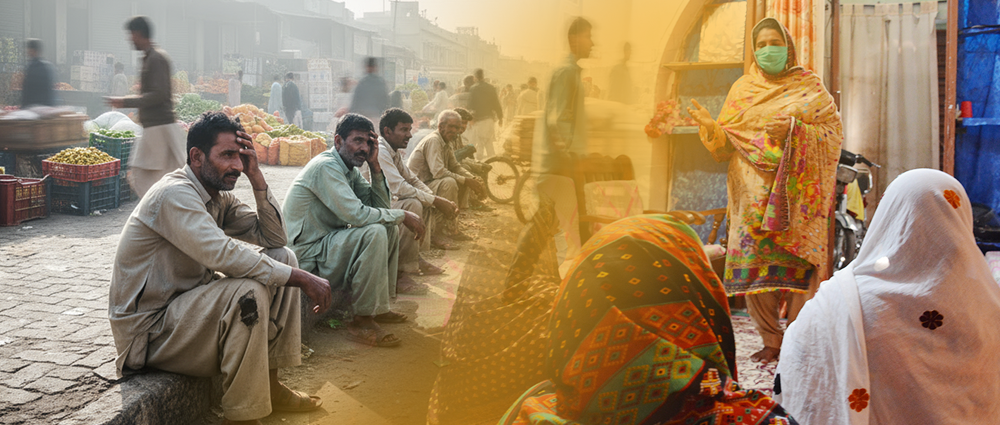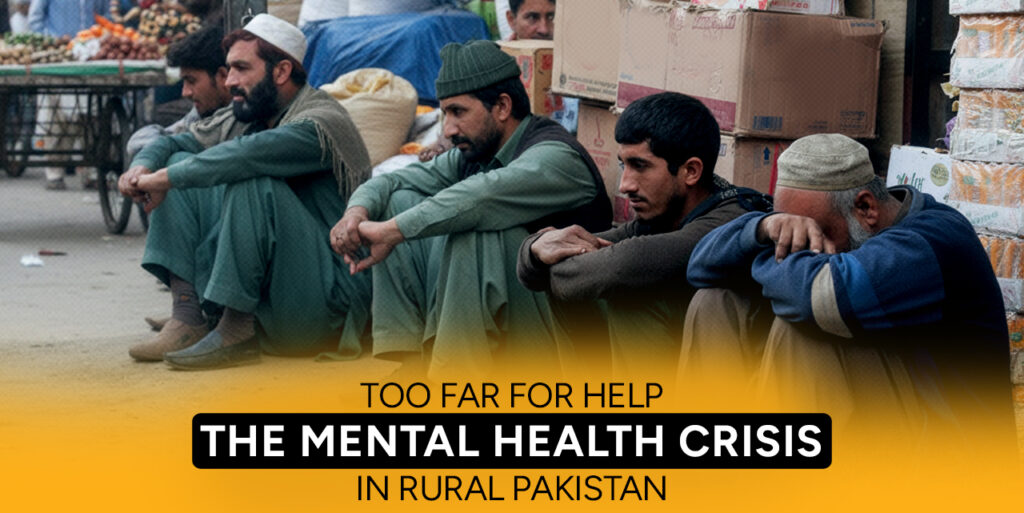Mental health is a universal concern, but in rural Pakistan, it has quietly grown into a serious crisis. While cities like Karachi, Lahore, and Islamabad have hospitals, psychiatrists, and awareness campaigns, villages and small towns often remain invisible in these conversations.
The mental health crisis in rural Pakistan is not just about untreated illness; it’s about silence, stigmas, personal prejudices, and a system that leaves the most vulnerable behind.
The Silent Struggle of Mental Health Crisis in Rural Pakistan
Life in villages can seem peaceful from the outside, but many people there live with depression and anxiety in rural Pakistan without ever speaking about it. Poverty, unemployment, natural disasters, and family pressures all contribute to worsening mental health.
Unfortunately, mental illness is often brushed aside as weakness, bad luck, or even possession, adding to the stigma of mental illness in Pakistani villages.
Why Do Rural Communities Suffer More?

The challenges of mental healthcare in rural South Asia are deeply rooted in inequality. In Pakistan’s rural areas:
- There are almost no trained psychiatrists or psychologists.
- Primary healthcare workers are rarely trained to recognize mental illness.
- Some major barriers to mental healthcare for rural communities include distance, cost, and lack of awareness.
- Families often prioritize physical illnesses, leaving untreated mental disorders in low-income areas as a hidden burden.
This creates a major psychological care access disparity between urban and rural Pakistan.
The Role of Culture and Stigma
Mental health awareness is slowly growing in urban spaces, but mental health awareness in Pakistani villages remains low. In rural settings, people often turn to spiritual healers or local elders instead of medical professionals.
While faith and community support are important, many cases of depression, bipolar disorder, or schizophrenia require medical attention. Because of the stigma, many patients suffer in silence or are hidden away from the community.
There are Some Who Are Stepping Up

Despite these barriers, some progress is being made. Mental health NGOs working in rural Pakistan are running awareness campaigns, training local health workers, and even offering telepsychiatry services to connect patients with doctors in big cities.
Some rural psychiatry outreach programs in Pakistan are working with schools and women’s groups to reduce stigma and teach people about symptoms.
However, the scale is too small compared to the need.
The Government’s Role
Government mental health support in Pakistan has historically been underfunded and overlooked. While policies exist on paper, rural implementation is weak.
Strengthening primary healthcare systems, training doctors in mental health, and supporting outreach programs are crucial if Pakistan is to bridge this gap.
The Way Forward
The mental health crisis in rural Pakistan cannot be solved overnight, but steps can be taken:
- Train local healthcare providers to recognize mental illness.
- Expand telehealth and digital counseling services.
- Partner with religious leaders to reduce stigma.
- Increase government mental health support in Pakistan with rural-specific funding.
- Encourage NGOs and community-led groups to expand their networks.
Final Thoughts
Behind every untreated illness is a person, a farmer, a mother, a student, struggling without support. The challenges of mental healthcare in rural South Asia show us that geography should not decide who gets help and who doesn’t.
By addressing the barriers to mental healthcare for rural communities, expanding rural psychiatry outreach programs in Pakistan, and tackling the stigma of mental illness in Pakistani villages, we can ensure that mental health is treated with the urgency and dignity it deserves.
Learn more about mental diseases and how you can provide the best care to patients by watching Decode, a Rava Documentary Films Exclusive feature film, available on YouTube.

